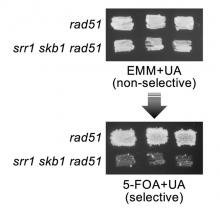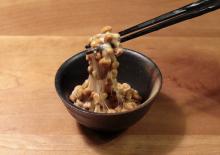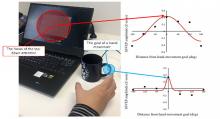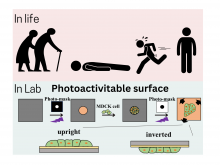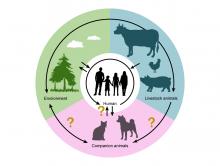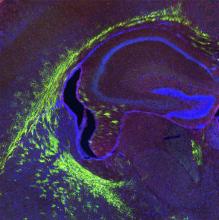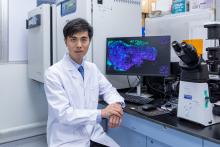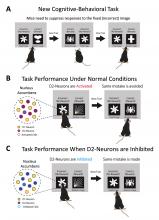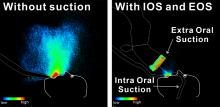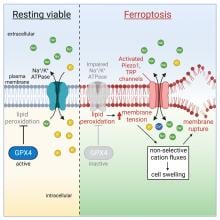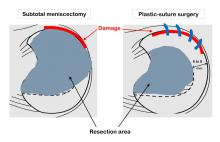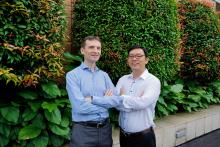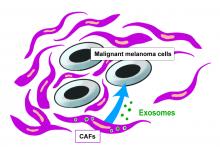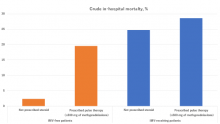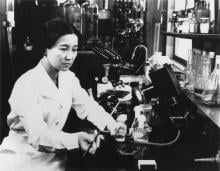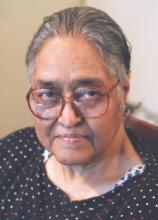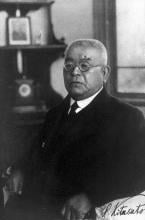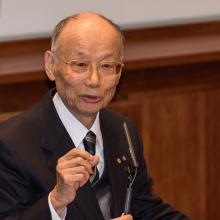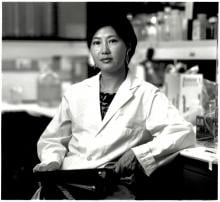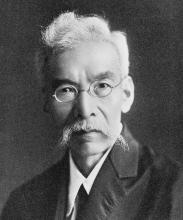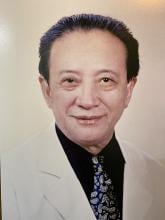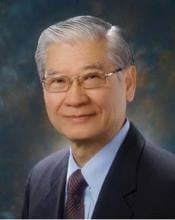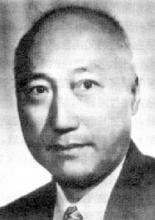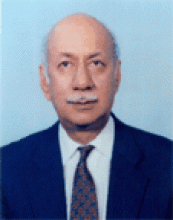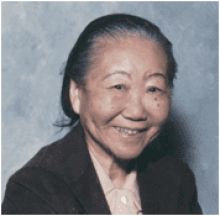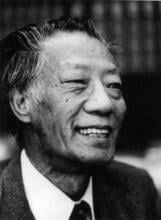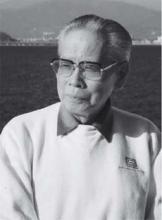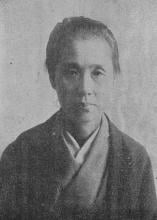Health
News
29 May 2023
Zinc is essential for our health. Our bodies must constantly regulate its zinc levels, otherwise fatal diseases such as cancers, growth failures, ad immunodeficiency can occur. Now, a research group has unearthed how zinc transporter complexes regulate zinc ion concentrations in different areas of the Golgi apparatus.
26 May 2023
A research team, led by researchers from Osaka University, performed genetic screening of fission yeast lacking DNA repair gene Rad51 to identify genes that play a role in gross chromosomal rearrangement (GCR), a type of mutation that occurs at the centromere. Cells lacking Srr1 or Skb1 exhibited reduced GCR, indicating that these genes are important to the occurrence of GCR. These findings advance our understanding of the mechanisms underlying centromeric GCR.
25 May 2023
Eating fermented foods might be the secret to a healthy and long-lived society
25 May 2023
Truck drivers unintentionally taking ‘microsleeps’ of a few seconds can cause terrible traffic accidents, but efforts and technologies aiming to prevent the problem have focused mainly on monitoring driver eye activity while missing a host of other key indicators of the problem.
19 May 2023
Asia Research News monitors the latest research news in Asia. Some highlights that caught our attention this week are a surprising antidote candidate for one of the deadliest mushrooms, why a certain species of spider walks like an ant, and the oldest primate embryos grown outside of the womb.
18 May 2023
It’s not unusual for many of us to reach for a cup of coffee or cup of tea whilst focusing our attention on a screen. Scientists have long pondered whether our hand movements influence our spotlight attention. And now a group of researchers from Tohoku University have discovered that our spotlight attention and the attention paid to our moving hands operates via independent mechanisms.
12 May 2023
Specially coated surfaces help scientists investigate what happens when cell clusters are turned upside down.
11 May 2023
A protein that helps bats survive viral diseases might offer lessons for developing new anti-inflammatory treatments.
11 May 2023
DGIST and New Life Group launched a research project on "Functional beauty and health products using the latest nanotechnology."
10 May 2023
A new drug delivery system delivers an antioxidant directly to mitochondria in the liver, mitigating the effects of oxidative stress.
08 May 2023
Osaka Metropolitan University scientists investigated the prevalence of antimicrobial resistant bacteria in 678 bacterial isolates from 428 companion dogs and 74 companion cats at the Veterinary Medical Center, Osaka Metropolitan University. Two E. coli strains have both a mobile colistin-resistant mcr gene and a third-generation cephalosporin-resistant blaCTX gene. One of these strains, which is found in a dog, was resistant to both colistin and third-generation cephalosporins.
05 May 2023
Asia Research News monitors the latest research news in Asia. Some highlights that caught our attention this week are a natural glue to hold stem cells in place, how cancer manipulates our immune cells, and the answer to Everest’s spooky nighttime noises.
05 May 2023
Scientists have found a lipid transporter crucial to regulating the cells that make myelin, the nerve-protecting sheath.
04 May 2023
HKBU joint research suggests that urine cytomegalovirus test facilitates early prediction of AIDS end-organ diseases
28 Apr 2023
Asia Research News monitors the latest research news in Asia. Some highlights that caught our attention this week are a flu that could potentially jump from dogs to humans, a surgically-implanted chip that can help with serious addiction cravings, and a powerful jet emitted from a supermassive black hole.
28 Apr 2023
Polycyclic aromatic hydrocarbons, in particular, lower the prognosis of ischemic strokes by causing inflammation in the brain.
26 Apr 2023
Singapore scientists find use of healthcare resources, absenteeism and reduced productivity due to mental health issues place a significant burden on Singapore’s economy.
25 Apr 2023
A research group at the Osaka Metropolitan University analyzed the relationship between diet, muscle mass, and liver fibrosis progression in 136 patients with nonalcoholic fatty liver disease attending the Osaka Metropolitan University Hospital. The research group found that the group with the highest Japanese diet score had less advanced liver fibrosis, and that the intake of soy products, seafood, and seaweed was important.
25 Apr 2023
The Nobel prize winning physicist Niels Bohr once said, “An expert is a (person) that has made all the mistakes that can be made in a narrow field.” This idea that to master a skill we must learn from our mistakes and avoid making them in future has long been recognized; however, the brain mechanisms and pathways that control this ability have been poorly understood.
We revealed a specific brain pathway that allows us to identify and learn from our mistakes to guide better decision-making in future.
Our work is an important step towards understanding how the brain controls our daily choices and behavior. The identification of these cells as ‘mistake signalers’ may also help to guide new treatments for mental health conditions associated with impaired decision-making ability.
21 Apr 2023
Asia Research News monitors the latest research news in Asia. Some highlights that caught our attention this week are bioprinting organs and tissues, settling a debate on a monster, and shedding light on dark matter.
14 Apr 2023
Asia Research News monitors the latest research news in Asia. Some highlights that caught our attention this week are a foldable buggy that can be used on the moon, synthetic nano-nets to help combat antibiotic resistance, and how that new car smell may not be a good thing.
10 Apr 2023
Doctors at King Chulalongkorn Memorial Hospital have developed lightweight and easy-to-use Parkinson's gloves that can automatically reduce tremors, allowing patients to enjoy social life and reducing side effects from medication and risk from brain surgery.
10 Apr 2023
The COVID-19 pandemic has made us more aware of the aerosols that hang around in the air and spread certain infectious diseases. Common dental procedures can be potentially hazardous in this regard. Therefore, it is crucial for researchers to be able to measure how aerosols spread so they can reduce them. A recent study harnessed a high-sensitivity camera and a high intensity LED light source, along with a mannequin and dental air turbine, to measure the spread of aerosols and the effectiveness of various means to reduce them.
07 Apr 2023
Asia Research News monitors the latest research news in Asia. Some highlights that caught our attention this week are snakes that do gymnastics to get out of danger, 3 species of ancient spiders discovered in China, and how monkeys can fall for magic tricks.
05 Apr 2023
Ferroptosis is a recently discovered type of cell death associated with certain neurodegenerative, cardiovascular and kidney diseases. Whilst scientists have understood that accumulated iron and degenerated lipids trigger ferroptosis, the actual mechanisms at play have remained a mystery. A team of researchers from Tohoku University has identified where in the cells these accumulations take place, and what gets targeted as ferroptosis occurs.
28 Mar 2023
Researchers from Osaka Metropolitan University Graduate School of Medicine conducted an interoperative comparison of lateral disc meniscus injuries of young patients (aged 15 or less), that were treated with plastic sutures or subtotal resection, to see if there was a difference in postoperative cartilage degeneration. The research group observed that sub-total meniscectomies were more likely to show cartilage degeneration, being worst in lateral disc meniscus injuries. In addition, they found that even with higher levels of meniscus damage, preserving the meniscus with sutures was more effective in protecting the cartilage in young patients.
28 Mar 2023
· Duke-NUS sleep scientists’ analyses show associations between early classes, less sleep, poor attendance and reduced grade point average.
· Studies in secondary and junior college students have shown that later start times can have positive impacts on grades.
27 Mar 2023
Cancer-associated fibroblasts (CAFs) are key factors in the tumor microenvironment, which have been implicated in cancer cell progression. It has also been reported that vesicles called exosomes produced by these CAFs play an important role in cancer progression. An Osaka Metropolitan University research group investigated the effect of CAF-derived exosomes on the growth of malignant melanoma cells. They found that CAF-derived exosomes express CD9 and CD63 transmembrane proteins, and that the CD9-positive exosomes may inhibit the growth of malignant melanoma cells.
27 Mar 2023
Researchers from Osaka University have found that repeated high-dose treatment, known as pulse therapy, with the steroid methylprednisolone reduces in-hospital deaths in COVID-19 patients who receive invasive mechanical ventilation, but not in patients who don’t receive invasive mechanical ventilation. These findings were only possible using appropriate statistical methods to remove bias from the data, which originally seemed to show that the opposite was true. These results can improve patient treatment and reduce COVID-19-related deaths worldwide.
24 Mar 2023
Hailey-Hailey disease is a rare, inherited condition characterized by patches of blisters appearing mainly in the skin folds of the arm pits, groin and under the breasts. It is caused by a mutation in the gene that codes for a specific protein. Tohoku University scientists have uncovered some critical details of this protein’s structure, and the findings could build the foundation for developing treatment for Hailey-Hailey disease and other neurodegenerative conditions.
Events
Sorry, no events coming up for this topic.
Researchers
Sorry, no researchers coming up for this topic.
- « first
- ‹ previous
- 1
- 2
- 3
- 4
Giants in history
Chinese biochemist Chi Che Wang (1894 - 1979), one of the first Chinese women to study abroad, advanced to prominent research positions at American institutions including the University of Chicago and the Northwestern University Medical School.
Ruby Sakae Hirose (1904 – 1960) was a Japanese-American scientist whose research contributed significantly to our understanding of blood clotting, allergies and cancer.
Flora Zaibun Majid ( 1939–2018) was an accomplished Bangladeshi researcher in botany and nutrition science and the first female chairperson of the Bangladesh Council of Scientific and Industrial Research.
Iranian physician and bacteriologist Azar Andami (8 December 1926 – 19 August 1984) developed a cholera vaccine to combat an outbreak that swept through the Middle East, India, Southeast Asia, and Africa in 1937.
Irene Ayako Uchida’s (8 April 1917 – 30 July 2013) strides to understand genetic diseases such as Down syndrome paved the way for early screening of chromosomal abnormalities in foetuses.
Baron Kitasato Shibasaburo (29 January 1856 – 13 June 1931) was a Japanese physician and bacteriologist whose work led to a new understanding of preventing and treating tetanus, diphtheria and anthrax.
Maggie Lim (5 January 1913 – November 1995) was a Singaporean physician who promoted family planning and expanded the access to clinics to improve the quality of life for mothers and children in Singapore’s early days.
By isolating soil microorganisms and studying the compounds they produce, Satoshi Omura (born 1935) discovered almost 500 organic compounds with unique properties that were produced by these microorganisms, including many new antibiotics.
The founder of the Adyar Cancer Institute in India, Muthulakshmi Reddy (30 July 1886 – 22 July 1968), fought to uplift women and girls from impoverished situations.
Chinese-American virologist and molecular biologist Flossie Wong-Staal (27 August 1946 – 8 July 2020) was the first scientist to clone HIV and determine the function of its genes.
Maharani Chakravorty (1937 – 2015) was one of India’s earliest molecular biologists whose research paved the way for advances in the treatment of bacterial and viral infections.
Archana Sharma (16 February 1932 - 14 January 2008) conducted research into plant and human genetics that expanded the understanding of both botany and human health. In relation to botany, she uncovered the means by which asexually-reproducing plants evolve into new species.
The first Thai woman to receive a degree in medicine, Margaret Lin Xavier (29 May 1898 – 6 December 1932), is best remembered for her compassion towards her less privileged patients.
In 1915, pathologist Katsusaburo Yamagiwa and his research assistant Koichi Ichikawa became the first to prove that chronic exposure to chemicals can cause cancer.
Filipino chemist and pharmacist Manuel A. Zamora (29 March 1870 – 9 July 1929) is best remembered for his discovery of the tiki-tiki formula to combat beriberi, a disease caused by Vitamin B1 deficiency.
After witnessing death and suffering as a youth in his home village during World War II, Nguyễn Tài Thu (6 April 1931 – 14 February 2021) set his sights on alleviating pain by becoming a doctor. After studying Traditional Chinese Medicine in China in the 1950s, Thu returned to Vietnam to serve in military hospitals. Eventually, he became the country’s foremost practitioner of acupuncture, a technique he first learned by inserting needles into himself.
David T. Wong (born 1936) is a Hong Kong-born American neuroscientist who is best known for discovering the antidepressant drug fluoxetine, better known as Prozac.
Indian organic chemist Asima Chatterjee (1917 to 2006) studied the medicinal properties of plant products, especially compounds known as vinca alkaloids.
Hsien Wu (24 November 1893 – 8 August 1959) is widely regarded as the founder of biochemistry and nutrition science in China. He was the first to propose that protein denaturation was caused by the unfolding of the protein, instead of chemical alteration.
Umetaro Suzuki (7 April 1874 – 20 September 1943) was a Japanese scientist best remembered for his research on beriberi, a disease caused by vitamin B1 deficiency, characterized by limb stiffness, paralysis and pain.
Syed Qasim Mehdi (13 February 1941 – 28 September 2016) was a Pakistani molecular biologist who was a founding member of the Human Genome Diversity Project (HGDP), which assessed human diversity by studying human migration, mutation rates, relationships between different populations, genes involved in height and selective pressure.
Tsai-Fan Yu (1911 – 2 March 2007) was a Chinese-American physician and researcher who was the first female full professor at Mount Sinai School of Medicine. She discovered that gout, a condition characterized by the painful inflammation of joints, was caused by elevated levels of uric acid in the bloodstream.
Min Chueh Chang (10 October 1908 – 5 June 1991) was a Chinese-American biologist who studied fertilization in mammalian reproduction.
A Japanese surgeon, Tetsuzo Akutsu (20 August 1922 – 9 August 2007) built the first artificial heart capable of keeping an animal alive.
Ogino Ginko (3 March 1851 – 23 June 1913) was the first registered female doctor to practise modern medicine in Japan.



